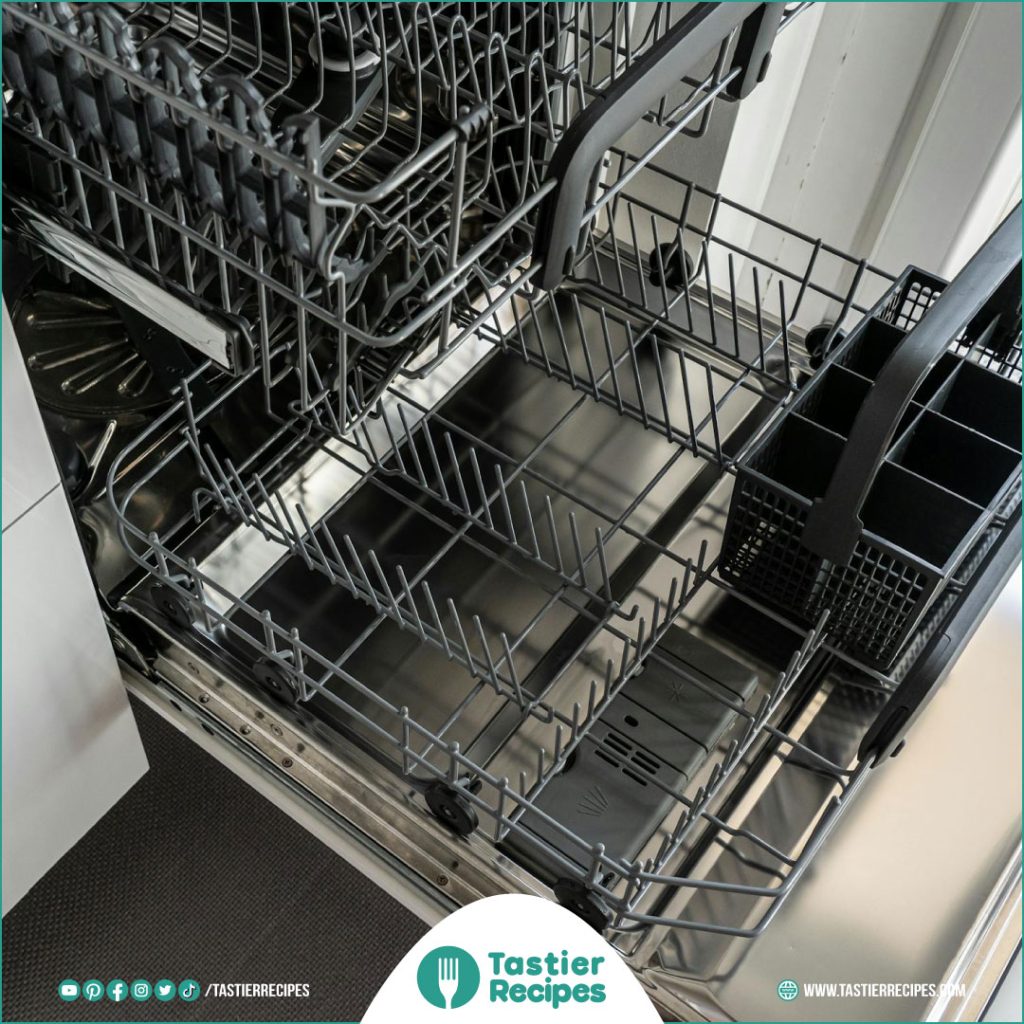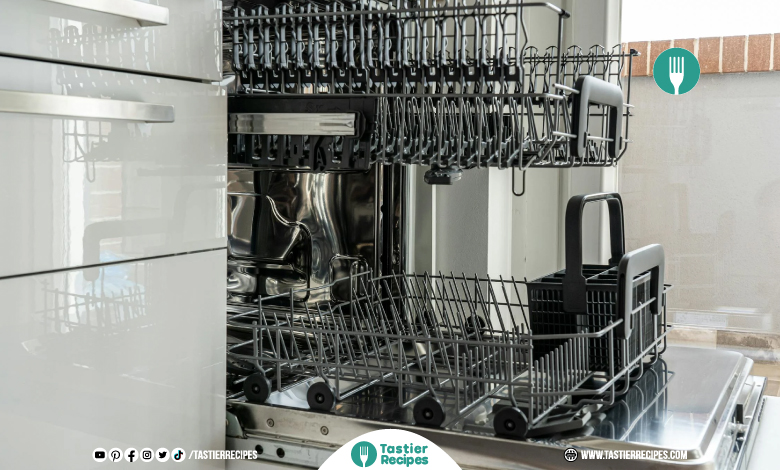When was the last time you indulged your dishwasher with a thorough cleaning? The notion of washing the appliance responsible for washing your dishes might seem peculiar. After all, doesn’t it perpetually cleanse itself?
However, merely running your dishwasher, even in an empty state, won’t suffice for a deep cleanse essential to eliminate accumulated food debris, grease, and residual detergent. Neglecting this crucial maintenance can lead to unappealing build-up and emit unpleasant odors, not to mention leaving your dishes with a grimy film.
Before loading your dishwasher with another batch of dishes, take a moment to assess whether it’s due for a deep cleanse. If you suspect it could benefit from some tender loving care, let’s delve into this comprehensive guide on how to effectively clean your dishwasher using readily available household items.

Thoroughly Clean Your Dishwasher with Vinegar and Baking Soda
The beauty of deep cleaning your dishwasher lies in its simplicity. You won’t find yourself hunched over, tirelessly scrubbing away. By employing the right cleaning solutions, you can rejuvenate your dishwasher with minimal effort, utilizing ingredients already stocked in your pantry.
Vinegar serves as an excellent agent for breaking down grease and grime, while baking soda effectively neutralizes odors, leaving your dishwasher smelling fresh and looking pristine. Incorporating this straightforward cleaning regimen every month can yield remarkable results.
Materials Required:
- A 2-cup glass measuring cup
- Two cups of either white vinegar or apple cider vinegar
- 1 cup of baking soda
- Toothbrush (optional)
Step-by-Step Directions:
- Empty Your Dishwasher: Ensure your dishwasher is completely devoid of any dishes before commencing the deep cleaning process.
- Vinegar Treatment: Place a glass measuring cup filled with two cups of vinegar on the top rack of your dishwasher.
- Cycle Without Detergent: Run a regular cycle without adding any detergent or dishes.
- Baking Soda Application: Once the cycle concludes, remove the measuring cup and pull out the bottom rack. Sprinkle baking soda generously across the bottom of the dishwasher.
- Final Rinse: Initiate a short hot-water cycle without detergent or dishes. For stubborn stains, utilize a toothbrush to eradicate them. Voila! Your dishwasher should now be devoid of grime, emanating a refreshing scent.
Frequency of Dishwasher Maintenance
While deep cleaning your dishwasher on a daily or even weekly basis isn’t imperative, adopting certain practices regularly can mitigate the accumulation of residue.
Post-Use Routine:
After each cycle, incorporate the habit of clearing any remnants of food left behind. Inspect the bottom rack for any residual food in the well or silverware basket and promptly remove it using a paper towel. This simple practice helps stave off odors and unsightly residue buildup.
Weekly Maintenance:
Weekly upkeep of your dishwasher is paramount for optimal performance. Follow these steps once a week:
- Interior Wipe Down: Employ a damp sponge or dish towel to wipe away any residue present on the interior door, door handle, and dishwasher controls.
- Filter Cleaning: Remove the filter weekly by pulling out the lower dish rack to access the filter situated at the base of the bottom spray arm. Rinse it under hot water and utilize a toothbrush to scrub the mesh screen and plastic, eliminating any residue. Once restored to its pristine condition, reattach it. Consistently repeating this process helps prevent spots and film on your dishes.
- Exterior Maintenance: For stainless steel dishwashers, address any fingerprints or stains on the exterior door as needed using a stainless steel cleaner. (A recommended product is Weiman Stainless Steel Wipes.)
Monthly Deep Clean:
Despite adhering to regular maintenance practices, a monthly deep clean remains essential to eliminate residue from inaccessible areas and maintain optimal dishwasher functionality.
Frequently Asked Questions (FAQ) About Dishwasher Cleaning
- Why is it necessary to clean my dishwasher?
- Cleaning your dishwasher is essential to remove accumulated food debris, grease, and detergent residue, preventing odor buildup and ensuring hygienic dishwashing.
- How often should I deep clean my dishwasher?
- It’s recommended to deep clean your dishwasher using vinegar and baking soda once a month to maintain optimal performance and hygiene.
- Can I use regular dish soap to clean my dishwasher?
- No, regular dish soap should not be used to clean your dishwasher as it can create excessive suds and potentially damage the appliance. Vinegar and baking soda are safer and more effective options.
- What if my dishwasher has a foul odor?
- A foul odor in your dishwasher is often a sign of accumulated food debris and grease. Deep cleaning with vinegar and baking soda can help eliminate the odor and leave your dishwasher smelling fresh.
- Do I need to remove the filter from my dishwasher for cleaning?
- Yes, it’s important to remove and clean the dishwasher filter regularly to prevent residue buildup and ensure proper drainage and cleaning performance.
- Can I use bleach to clean my dishwasher?
- While bleach can effectively disinfect your dishwasher, it’s not recommended for regular cleaning as it can damage the appliance’s rubber components. Vinegar and baking soda provide a safer alternative.
- How can I maintain the exterior of my dishwasher?
- To maintain the exterior of your dishwasher, wipe it down regularly with a damp cloth or use a stainless steel cleaner for stainless steel models to remove fingerprints and stains.
- Is it necessary to clean my dishwasher after each use?
- While deep cleaning after each use isn’t required, it’s advisable to remove any leftover food debris from the dishwasher to prevent odor and residue buildup.


Leave a Comment